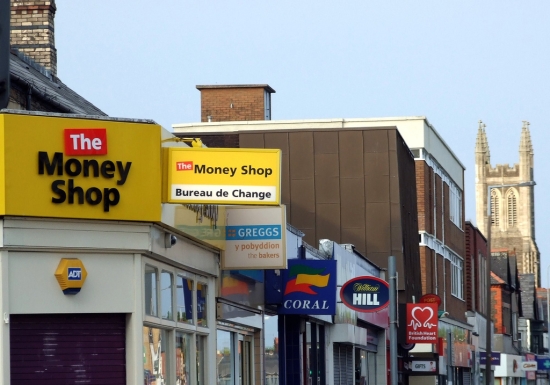During the financial crisis, and throughout the resulting recession, many small businesses on the high street were forced to close as a result of falling footfall and low consumer spending. This led to a rise in commercial property vacancy rates, which was kept in check largely due to the number of betting chains taking advantage of lower rents and expanding onto the high street en masse.

However, now that the economy has begun to improve and small retail businesses are beginning to examine their options when it comes to high street trading, council leaders believe that the vast number of betting shops on the nation’s high streets are actually having a detrimental effect on regional economic growth. As a result, the Local Government Association (LGA) has called upon the government to change the law in order to give local authorities greater powers in tackling the “blight” of large scale betting shop expansion.
The LGA claims that existing legislation in planning and licensing does not allow local councils to take into account the concerns of local communities when addressing the issue of betting shops on the high street. As data from the Office for National Statistics (ONS) shows the average British household spent a total of £166 on gambling last year, councillors are concerned that the greater availability of bookies is encouraging consumers to spend increasingly higher amounts– often at the expense of the household budget.
LGA spokesman Tony Page believes a change in law could bring balance to the high street and pave the way for greater diversity, thus giving high street businesses the ability to appeal to a wider consumer market.
He says; “Councils aren’t anti-bookies but need powers to tackle the damage that can be caused to high streets and town centres.
“Planning and licensing controls are supposed to ensure new shops or businesses would benefit an area.
“Licensing laws must be updated to allow councils to consider the impact a new betting shop would have on their local economy and existing businesses – this would protect the power of local communities and democratically elected councillors to shape their area.”
In a surprising turn, it appears that the change in law would hypothetically be supported by a key figure within the gambling industry after William Hill chief executive Ralph Topping admitted large numbers of betting shops in one area could be harmful to communities. In an interview with the Racing Post, he claimed areas which have suffered adverse effects from an influx of betting shops would benefit from councillors having greater control over licensing laws.
However, the Association of British Bookmakers has refuted allegations that the number of bookmakers on the high street has risen in recent years, claiming that the figure has remained relatively static for the past decade and is currently at half the level of the 1970s. Furthermore, it claims that all growth is in response to consumer demand and that bookmakers “add to the vitality and vibrancy of the high street.”
Previous Post
Commercial Lease Lengths at Historic Low